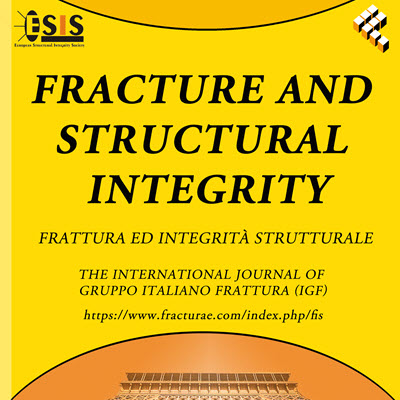Fracture and Structural Integrity: The Podcast
Stay at the cutting edge of fracture mechanics and structural integrity research with the official podcast of the Fracture and Structural Integrity journal. Join us for insightful interviews with top researchers, in-depth discussions of groundbreaking papers, and explorations of emerging trends in the field.
RSS Spotify YouTube Amazon Music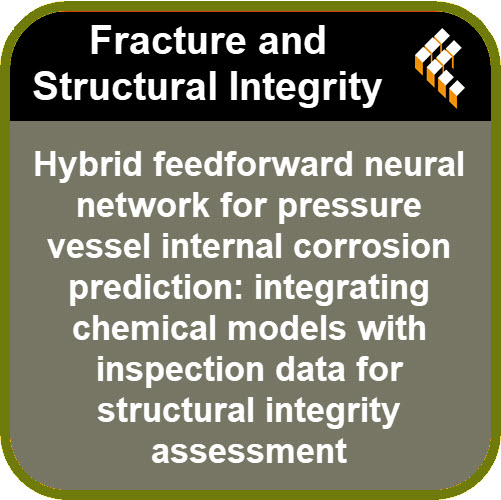
Hybrid feedforward neural network for pressure vessel internal corrosion prediction: integrating chemical models with inspection data for structural integrity assessment
2026-01-06
https://www.fracturae.com/index.php/fis/article/view/5759
More DownloadFiletype: MP3 - Size: 1 MB - Duration: 5:09m (320 kbps 44100 Hz)
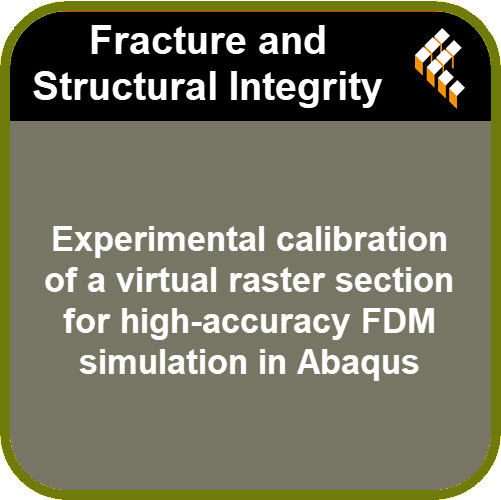
Experimental calibration of a virtual raster section for high-accuracy FDM simulation in Abaqus
2026-01-02
https://www.fracturae.com/index.php/fis/article/view/5665
More DownloadFiletype: MP3 - Size: 1 MB - Duration: 5:17m (320 kbps 44100 Hz)
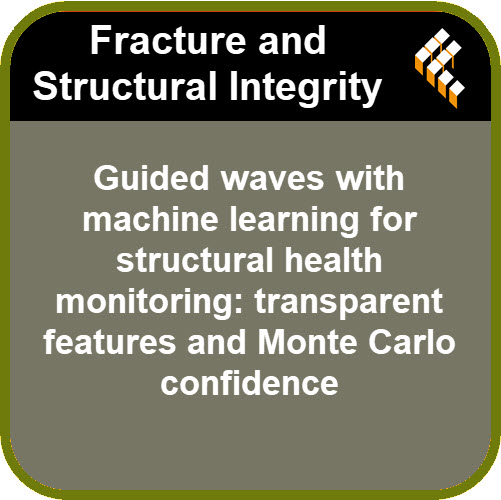
Guided waves with machine learning for structural health monitoring: transparent features and Monte Carlo confidence
2026-01-02
https://www.fracturae.com/index.php/fis/article/view/5666
More DownloadFiletype: MP3 - Size: 1 MB - Duration: 5:26m (320 kbps 44100 Hz)
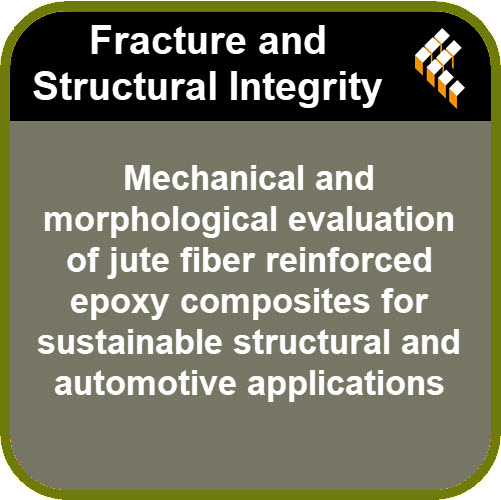
Mechanical and morphological evaluation of jute fiber reinforced epoxy composites for sustainable structural and automotive applications
2026-01-02
https://www.fracturae.com/index.php/fis/article/view/5750
More DownloadFiletype: MP3 - Size: 1 MB - Duration: 4:38m (320 kbps 44100 Hz)
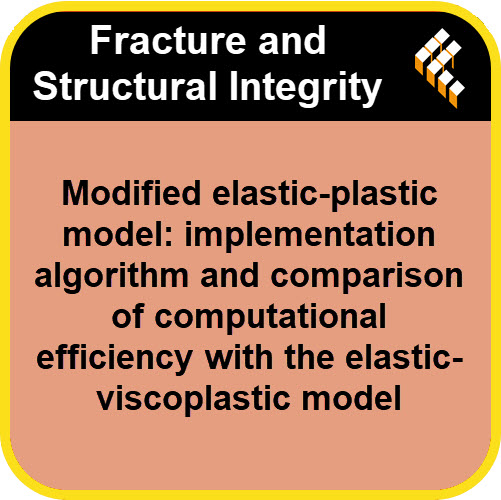
Modified elastic-plastic model: implementation algorithm and comparison of computational efficiency with the elastic-viscoplastic model
2025-12-16
https://www.fracturae.com/index.php/fis/article/view/5730
More DownloadFiletype: MP3 - Size: 2 MB - Duration: 11:38m (320 kbps 44100 Hz)
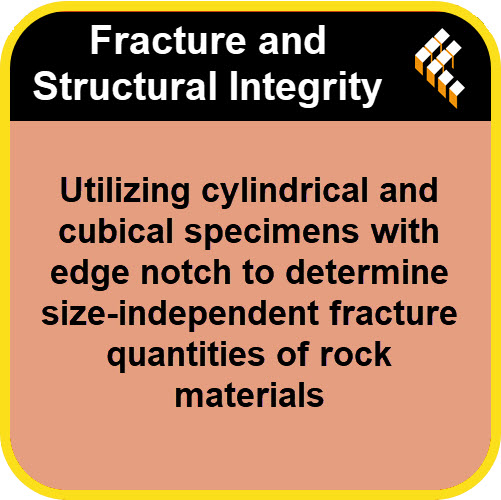
Utilizing cylindrical and cubical specimens with edge notch to determine size-independent fracture quantities of rock materials
2025-12-11
https://www.fracturae.com/index.php/fis/article/view/5681
More DownloadFiletype: MP3 - Size: 2 MB - Duration: 11:30m (320 kbps 44100 Hz)
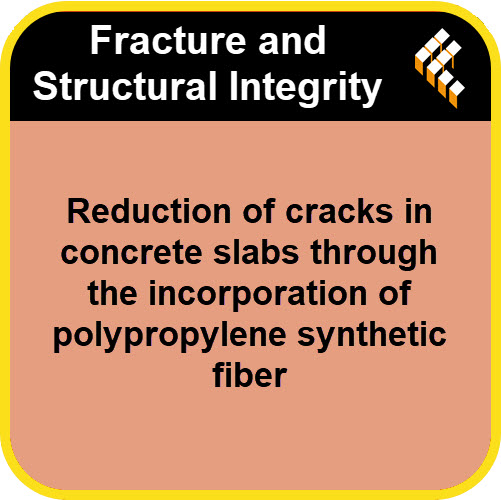
Reduction of cracks in concrete slabs through the incorporation of polypropylene synthetic fiber
2025-12-11
https://www.fracturae.com/index.php/fis/article/view/5680
More DownloadFiletype: MP3 - Size: 2 MB - Duration: 11:41m (320 kbps 44100 Hz)
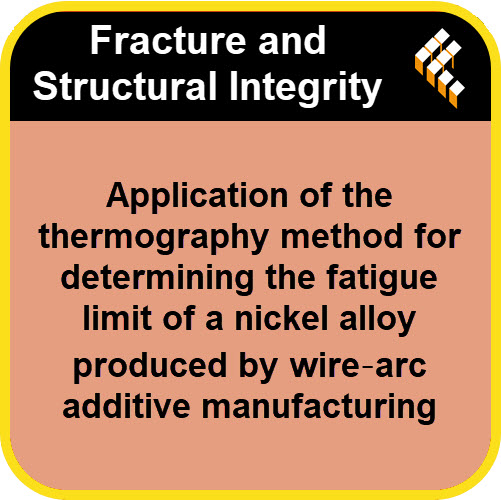
Application of the thermography method for determining the fatigue limit of a nickel alloy produced by wire‑arc additive manufacturing
2025-12-08
https://www.fracturae.com/index.php/fis/article/view/5689
More DownloadFiletype: MP3 - Size: 3 MB - Duration: 13:48m (320 kbps 44100 Hz)
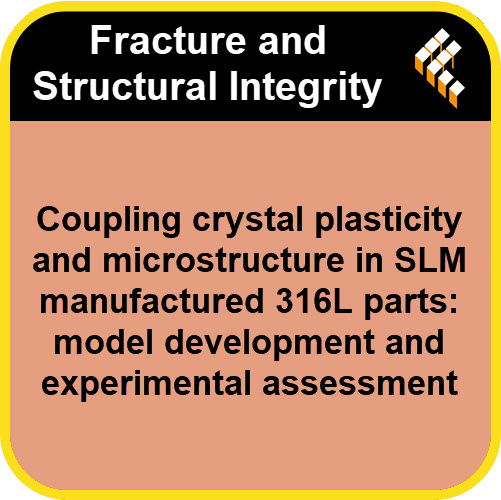
Coupling crystal plasticity and microstructure in SLM manufactured 316L parts: model development and experimental assessment
2025-11-23
https://www.fracturae.com/index.php/fis/article/view/5671
More DownloadFiletype: MP3 - Size: 3 MB - Duration: 12:47m (320 kbps 44100 Hz)

Machine learning-assisted fracture prediction: Integrating synthetic and experimental data for quasi-static notch failure analysis
2025-11-23
https://www.fracturae.com/index.php/fis/article/view/5669
More DownloadFiletype: MP3 - Size: 3 MB - Duration: 14:47m (320 kbps 44100 Hz)
Powered by Podcast Generator, an open source podcast publishing solution | Theme based on Bootstrap
